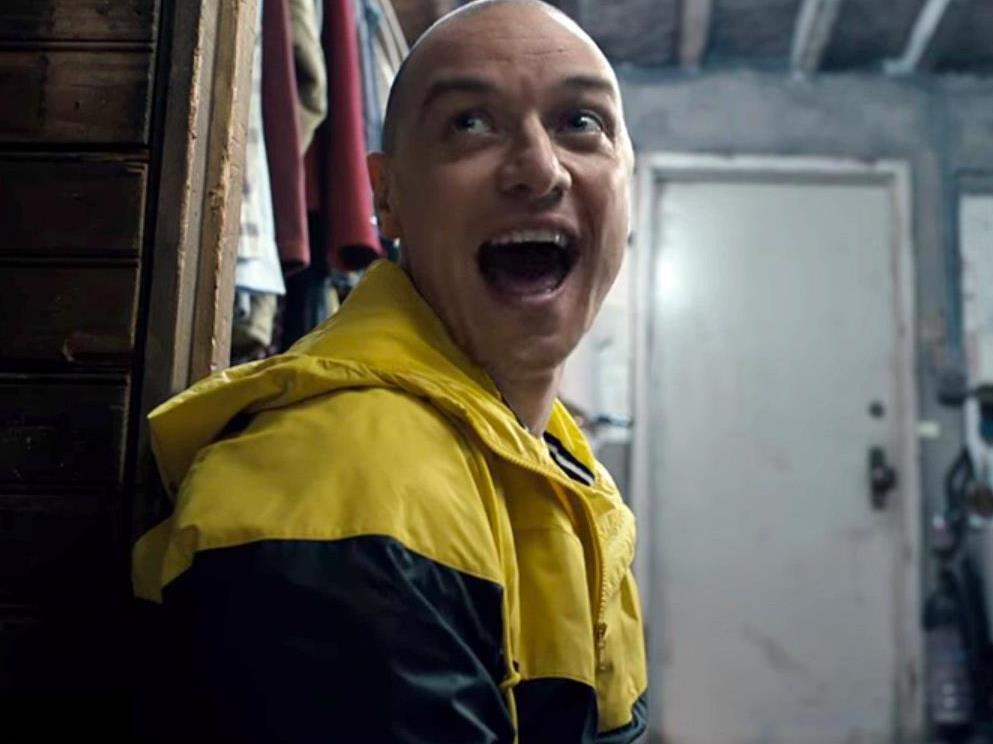There has to be a twist, right? That line of thinking has become synonymous with M. Night Shyamalan ever since The Sixth Sense made him a household name, and has proven accurate in the bulk of his output since. Unbreakable, Signs, The Village, Lady in the Water, The Happening and The Visit all charted a similar path, while establishing the filmmaker’s other recurring traits. The Philadelphia-raised writer/director is fond of setting his features in and around his home city, of popping up in small parts, and of making films focused on belief. His characters are typically secure in their knowledge about their own worlds, but are forced to interrogate everything the hold dear, often courtesy of supernatural elements.
Shyamalan’s now-customary tendencies all rear their head in his latest and 12th film, Split; however, what also eventuates is an effort that’s more than a “what’s the gimmick?” guessing game. Discovering that the feature’s protagonist has 24 distinctive personalities isn’t the movie’s climactic point, nor are the flashbacks involving one of his victims. Instead, Split plunges happily into spatially constrained, plot twist-restrained, close-quarters psychological-thriller territory.
That aforementioned figure with two-dozen guises is Kevin (James McAvoy, X-Men: Apocalypse), at least when he’s in control and able to navigate his ordinary life. He isn’t present when high school classmates Casey (Anya Taylor-Joy, Barry), Claire (Haley Lu Richardson, The Edge of Seventeen) and Marcia (Jessica Sula, TV’s Recovery Road) are abducted, despite appearances to the contrary. As the captives soon learn while they’re cramped in an underground bunker, desperately trying to escape, and often punished for their efforts, sometimes their kidnapper is the kindly, horrified Kevin — but, sometimes he’s the creepy, controlling Dennis; the fanatical, middle-aged Patricia; the fashion-loving Barry; or the lisping, nine-year-old Hedwig. Kevin’s warring personalities try to convince his psychiatrist, Dr. Karen Fletcher (Betty Buckley, The Happening), that he’s fine, though their in-fighting and erratic actions demonstrate otherwise, which Casey attempts to use to her advantage.
The biggest surprise here isn’t the premise itself, or how the accompanying tale unfolds by following in the footsteps of 10 Cloverfield Lane and largely sticking to the expected script; it’s how effectively everything plays out within Split’s 117 minutes. In a film involving dissociative identity disorder as well as teenagers locked in a basement, perspective is crucial — in shifting between Kevin’s many personas, and in exploring both the perpetrator and the abductee mindsets. Valuing precision and control, Shyamalan weaves everything together with a command of the feature’s unnerving mood, with sharp editing by Luke Franco Ciarrocchi (The Visit), and by using cinematographer Mike Gioulakis (It Follows) and composer West Dylan Thordson (Joy) to reinforce the many differences evident within the movie’s various players. Limiting the audience’s gaze, peering from odd angles and keeping important moments out of sight heightens the suspense. Chasing Casey and her friends through corridors adds immediacy and urgency. The surging score keeps the tone unsettled. They’re well-used tactics, but they work.
It’s more than enough to immerse viewers in the tense antics, though humour also filters through — and to forget that Shyamalan is best known for his twist-centric tendencies. Perhaps the second considerable revelation is just how seamlessly McAvoy slips into his diverse array of characters, embracing and achieving the challenge of giving each their own space, mindset and physicality, while also hinting at the shared pain and turmoil always lurking beneath the surface. It’s an extraordinary showcase, steeped in the ambiguity of approaching a wrong-doing protagonist with their own complicated struggles, and only improved by giving his predator a worthy prey in the expressive Taylor-Joy, who offers the film’s other standout performance. The final bombshell? While paying close attention has its own context-enhancing rewards, it’s really that, with Split, Shyamalan has made his best movie in almost two decades.
Rating: 3 ½ stars out of 5
Split
Director: M. Night Shyamalan
USA, 2016, 117 mins
Distributor: Universal
Rated: M
Actors:
Director:
Format:
Country:
Release:





